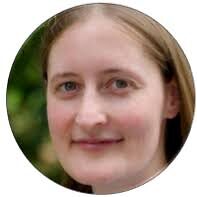QSense OIST Mini-Symposium Talk 9: "Noisy Distributed Sensing in the Bayesian Regime"

Date
Location
Description
Speaker: Dr Sabine Wölk, Deutsches Zentrum für Luft- und Raumfahrt e. V. (DLR) Institut für Quantentechnologien
Noisy Distributed Sensing in the Bayesian Regime
(QSense OIST Mini Symposium Talk 9)
Measuring physical quantities with high precision is of central importance in various branches of science, and using quantum systems offers a (quadratic) advantage. Whenever some unknown signal or function should be sensed using multiple sensors, one is typically faced with a situation that the sensors are at different positions. Furthermore, with the rapid developments in quantum networks, even arrays of such quantum sensors distributed over large distances are in reach. These networks can be used to measure non-local properties such as field gradients or spatial Fourier coefficients, or to increase the precision of atomic clocks, interferometers and telescope networks. While the spatial distribution of sensors is irrelevant for signals without spatial dependence (as often considered in metrological scenarios), this is a crucial asset in the sensing of signals with certain spatial correlations. In addition, realistic quantum metrology needs to take noise and limitations in measurement time, measurement repetitions, and prior knowledge into account.
In this talk, I will first discuss how we can adapt in general (also for spatial independent fields) our quantum system to limitations in measurement time, measurement repetitions, and prior knowledge by varying the spectral range and the number of levels of our quantum system. In sensor networks, this can be achieved by e.g. varying the positions of the sensors. Then, I will discuss how we can protect sensor networks from noise sources with a different spatial distribution than the signal field.
[1] S. Wölk, P. Sekatski and W. Dür, “Noisy distributed sensing in the Bayesian regime “, Quantum. Sci. Technol. 5, 045003 (2020).
[2] P. Sekatski, S. Wölk and W. Dür, “Optimal distributed sensing in noisy environments”, Phys. Rev. Res. 2, 023052 (2020)
OIST Mini-Symposium for Quantum Sensors of Magnetic and Inertial Forces
This mini-symposium is hosted by the Quantum Machines Unit in the Okinawa Institute of Science and Technology Graduate University, and will take place from Feb 1, 2021 - March 5, 2021. To get the precise schedule and zoom invitation please register below. Attendance is open to any student/faculty member from any of the institutions associated with the speakers.
Summary
Quantum systems are extremely fragile, sensitive to noise and fluctuations by their environments. This, in turn, makes them excellent sensors for a variety of forces and fields. In this mini-symposium we focus on the development of novel quantum sensors which are aimed at the precision sensing of inertial forces such as acceleration or gravity, and magnetic forces.
Such sensors - accelerometers/gravimeters or magnetometers, have a widespread application in industry such as sensing underground water movements using gravimeters, through to magnetic brain imaging using magnetoencephelography. Each week we hear from three international experts on these topics in hour-long seminars and discussions.
For more information, visit the QSense website.
Website URL
Subscribe to the OIST Calendar: Right-click to download, then open in your calendar application.



